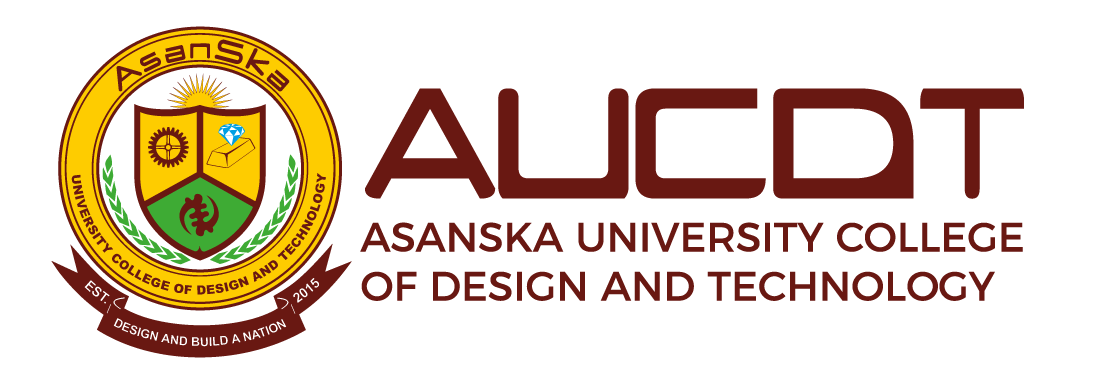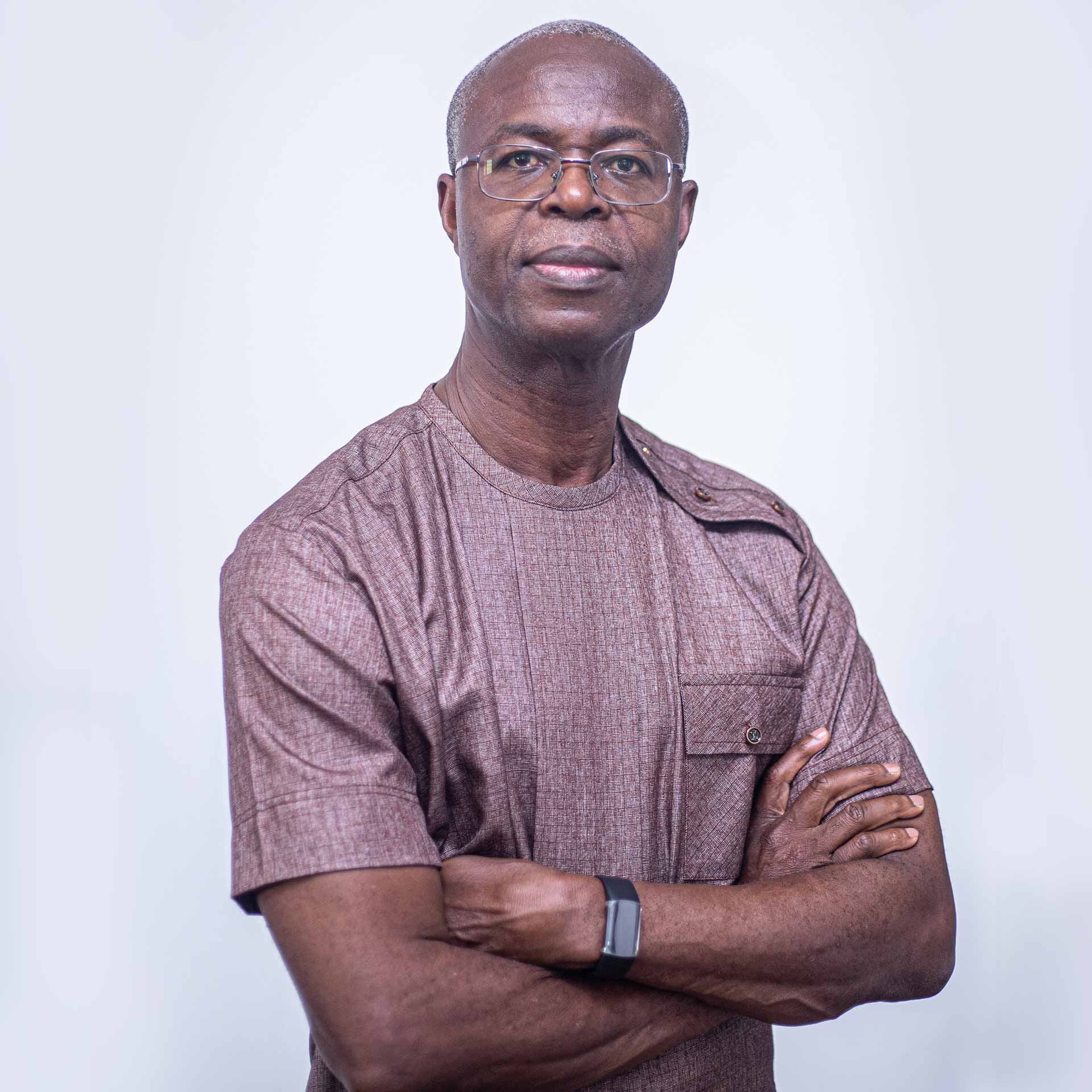Office of the President
The President of the University College, Dr. Emmanuel Amankwah Asante is the Chief Executive Officer responsible for organising and conducting the academic, financial, and administrative business of the University College.
He shall have overall authority over the academic, financial and administrative staff and shall submit annually, through the Academic Board of Council, a statement of the staff which, in his opinion, is necessary for the transaction of University College business. The President shall, subject to approval of Council, have power to delegate any of the functions assigned him by Council to any Senior Member of the University College as shall seem to him appropriate.
Dr. Emmanuel A. Asante
Brief Life History
Dr. E. A Asante who hails from Begoro in the Fanteakwa District, Eastern Region of Ghana, obtained a BSc (Hons) Degree in Animal Science from the University of Ghana and a PhD in Biochemical Genetics from the University of Edinburgh (1985-1988). He then took up molecular genetics and genetic engineering for his postdoctoral research at the Roslin Institute, Edinburgh for 3 years. He subsequently worked at the Royal Veterinary College (RVC, London) and Imperial College School of Medicine at St Mary’s (ICSM, London), before finally finishing off his illustrious scientific career in the United Kingdom at the Medical Research Council (MRC) Prion Unit at UCL in 2021. He relocated to Ghana in November 2021 to assume his current role as the President of AsanSka University College of Design and Technology at Oyibi (off Adenta-Dodowa Road).
Educational Qualification
- 1979-1982 BSc (Hons) (2.1) Animal Science, University of Ghana, Legon, Ghana.
- 1984-1985 MSc Animal Genetics, Institute of Animal Genetics, University of Edinburgh, (transferred registration to start a PhD after writing and passing qualifying MSc examination).
- 1985-1988 PhD Biochemical Genetics, University of Edinburgh, Edinburgh (Scotland).
Professional History
- (2021 – Present) President AsanSka University College of Design and Technology, Oyibi, Ghana.
- (2017 – 2021) Band 2B Senior Scientist, MRC Prion Unit at UCL, Institute of Prion Diseases, London.
- (2016 – 2021) Senior Lecturer, University College London (UCL).
- (2014 – 2017) Band 2A Senior Scientist, MRC Prion Unit, UCL Institute of Neurology, London.
- (2002 – 2014) Band 3 Senior Scientist, MRC Prion Unit, UCL Institute of Neurology, London.
- (1994 – 2002) Research Associate, Imperial College School of Medicine at St. Mary’s, London.
- (1991 – 1994) Postdoctoral Research Fellow, Royal Veterinary College, London, UK.
- (1988 – 1991) Higher Scientific Officer, The Roslin Institute, Edinburgh, UK.
- (1982-1984) Research Assistant, University of Ghana, Legon, Ghana.
Prizes, Awards And Other Honours
-
1982: Won “Shell Prize” Award for Best BSc Dissertation, Animal Science Department, University of Ghana, Legon.
-
1984: British Commonwealth Scholarship Award for postgraduate studies at the University of Edinburgh.
-
1985: James Rennie Bequest Fund for International Travel, Institute of Animal Genetics, University of Edinburgh.
-
2012, 2013, 2014: Recipient of MRC Special Award for outstanding contributions to the Prion Unit’s success.
-
June 2015: Named International Scientist of the Week 25 June 2015, Laboratory Equipment (following publication of Nature paper).
Summary of Scientific Research Interests
His scientific research was centred on using humanised transgenic models that faithfully recapitulate the key features of human prion diseases to model aspects of prion disease biology. These include the species barrier, prion strain variation, inherited prion diseases, the protein only hypothesis, and evaluation of candidate small molecule therapeutic drugs and antibodies against human prion disease.
Several seminal papers were published in high impact scientific journals during his active research period. This included challenging the relevance of modelling human prion disease-associated mutations on rodent prion protein as a surrogate for direct modelling on the human prion protein, a 2015 Nature paper, which attracted UK national and international media acclaim, on how a single amino acid variant 127GV was able to confer absolute protection against kuru infection in the Fore-speaking people of Papua New Guinea. His final consequential contribution to the prion disease research field was the demonstration of the first transgenic model expressing only mutant human prion protein to ever show spontaneous generation of transmissible prions. Peer-reviewed intramural funding for the MRC Prion Unit’s Research Programme 3 (Transgenic Modelling of Human Prion Susceptibility and Diseases) which Prof. Emmanuel Asante led, stood in excess of £14 million by his retirement date in October 2021.
Publications
Five (5) most signigicant
Asante, EA., Linehan, JM., Tomlinson, A., Jakubcova, T., Hamdan, S …(2020). Spontaneous generation of prions and transmissible PrP amyloid in a humanised transgenic mouse model of A117V GSS. PLoS Biology 18 (6), e3000725.
Asante, EA., Smidak, M., Grimshaw, A., Houghton, R., Tomlinson, A., Jeelani, A., . . . Collinge, J. (2015). A naturally occurring variant of the human prion protein completely prevents prion disease. Nature, 522(7557), 478-481. doi:10.1038/nature14510.
Asante, EA., Grimshaw, A., Smidak, M., Jakubcova, T., Tomlinson, A., Jeelani, A., . . . Collinge, J. (2015). Transmission Properties of Human PrP 102L Prions Challenge the Relevance of Mouse Models of GSS. PLoS Pathog, 11(7), e1004953. doi:10.1371/journal.ppat.1004953.
Wadsworth, JDF., Asante, EA., Desbruslais, M., Linehan, JM., Joiner, S… (2004). Human prion protein with valine 129 prevents expression of variant CJD phenotype. Science 306 (5702), 1793-1796.
Collinge, J., Palmer, MS., Sidle, KCL., Hill, AF., Gowland, I., Meads, J., Asante, E … (1995). Unaltered susceptibility to BSE in transgenic mice expressing human prion protein. Nature 378 (6559), 779-783.

